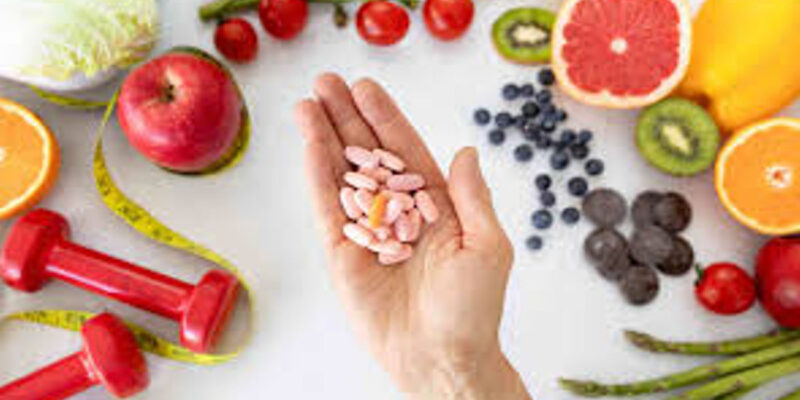
Maintaining good eye health is crucial for overall well-being. Our eyes allow us to experience the world, and taking care of them should be a priority. One effective way to ensure our eyes remain healthy is by incorporating the right vitamins into our diet. This article explores what vitamins are good for your eyes, their benefits, and how to include them in your daily routine.
Key Vitamins for Eye Health
- Vitamin A
Role: Vitamin A is essential for maintaining good vision, especially in low-light conditions. It helps the eyes convert light into a signal that can be sent to the brain, enabling night vision.
Sources:
- Carrots
- Sweet potatoes
- Spinach
- Kale
- Liver
Benefits: Vitamin A is crucial for the health of the cornea and the conjunctival membranes. Deficiency in Vitamin A can lead to xerophthalmia, a condition characterized by dry eyes, corneal ulcers, and even blindness in severe cases.
- Vitamin C
Role: Vitamin C is a powerful antioxidant that helps protect the eyes from damage caused by free radicals. It also supports the health of blood vessels in the eyes and can help prevent cataracts.
Sources:
- Oranges
- Strawberries
- Bell peppers
- Broccoli
- Brussels sprouts
Benefits: Regular intake of Vitamin C can slow the progression of age-related macular degeneration (AMD) and reduce the risk of developing cataracts. It also promotes the health of the connective tissues in the eye.
- Vitamin E
Role: Vitamin E works alongside Vitamin C to protect the eyes from oxidative stress. It has been linked to a reduced risk of age-related macular degeneration (AMD).
Sources:
- Almonds
- Sunflower seeds
- Hazelnuts
- Peanuts
- Spinach
Benefits: Vitamin E helps to protect the cells of the eyes from damage and may slow the progression of cataracts. It’s particularly effective when taken in combination with other antioxidants.
- Vitamin B2 (Riboflavin)
Role: Riboflavin is important for preventing cataracts. It helps the body convert food into energy and supports the health of the eyes.
Sources:
- Milk
- Eggs
- Lean meats
- Green vegetables
- Fortified cereals
Benefits: Adequate levels of riboflavin can lower the risk of developing cataracts. It also helps reduce eye fatigue and light sensitivity.
- Vitamin B6, B9, and B12
Role: These B vitamins work together to lower levels of homocysteine, an amino acid that has been linked to inflammation and an increased risk of AMD.
Sources:
- Poultry
- Fish
- Bananas
- Beans
- Fortified cereals
Benefits: The combination of B6, B9, and B12 vitamins is essential in reducing the risk of AMD and supporting overall eye health. They also aid in reducing symptoms of dry eyes.
- Lutein and Zeaxanthin
Role: These carotenoids are found in high concentrations in the retina. They help filter harmful blue light and protect the eyes from damage.
Sources:
- Kale
- Spinach
- Corn
- Peas
- Eggs
Benefits: Lutein and zeaxanthin act as natural sun blocks by absorbing blue light, which can damage the retina over time. They also improve visual sharpness and contrast sensitivity.
Why Vitamins Matter for Eye Health
Vitamins play a vital role in preserving vision and preventing eye diseases. They help protect the eyes from damage caused by factors like aging, UV rays, and oxidative stress. Ensuring an adequate intake of these essential nutrients can significantly improve eye health and reduce the risk of conditions such as macular degeneration, cataracts, and glaucoma. The risk of vitamin deficiency can lead to various eye health issues, making it crucial to maintain proper vitamin levels.
How to Incorporate These Vitamins into Your Diet
Incorporating these vitamins into your diet can be straightforward with a few dietary adjustments. Here are some tips:
- Diversify Your Diet: Include a variety of fruits and vegetables in your meals to ensure you get a broad range of vitamins. For instance, a colorful salad with spinach, carrots, bell peppers, and a citrus dressing can be both nutritious and delicious.
- Opt for Whole Foods: Choose whole foods over supplements, when possible, as they provide a more complex nutrient profile. Whole foods often contain fiber, antioxidants, and other beneficial compounds that work together to support health.
- Balance Your Meals: Combine different food groups to create balanced meals that are rich in essential nutrients. For example, a meal of grilled salmon, quinoa, and steamed broccoli provides a mix of vitamins A, C, and E, along with omega-3 fatty acids.
- Healthy Snacks: Snack on nuts, seeds, and fruits to boost your vitamin intake throughout the day. Almonds and sunflower seeds are great sources of Vitamin E, while oranges and strawberries provide a quick Vitamin C fix.
- Consult a Professional: If you have specific dietary needs or restrictions, consult with a healthcare professional or a dietitian for personalized advice. They can help you create a diet plan that meets your nutritional needs and supports eye health.
Additional Tips for Eye Health
- Stay Hydrated: Drinking plenty of water helps maintain the moisture balance in your eyes, preventing dryness and irritation.
- Protect Your Eyes: Wear sunglasses that block 100% of UVA and UVB rays to protect your eyes from harmful ultraviolet light.
- Limit Screen Time: Reduce the amount of time you spend looking at screens and take regular breaks to rest your eyes.
- Exercise Regularly: Physical activity improves blood circulation, which can benefit your eyes by increasing the oxygen supply and helping to remove toxins.
Conclusion
Taking care of your eyes is an essential aspect of maintaining overall health. By understanding what vitamins are good for your eyes and making informed dietary choices, you can significantly improve your vision and reduce the risk of eye diseases. Remember to include a variety of vitamin-rich foods in your diet and seek professional guidance if needed. Prioritize your eye health today for a clearer, brighter tomorrow.











